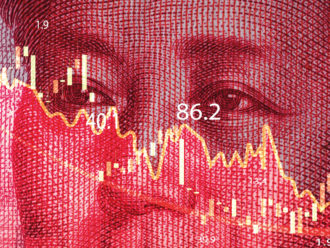RISE OF EMs?
As political and economic uncertainty continues to thrive in the UK and other developed markets, Ashmore Investment Management head of research Jan Dehn believes it is time investors woke up to the fact that developed markets are far from risk-free and that investors are simply not paid adequately.
“For example, between 2000 and the end of May 2016 European investment grade (IG) government bonds had twice the volatility of euro-denominated EM IG government bonds, yet paid investors only half the yield,” he says.
Additionally, Lombard Odier Investment Managers head of global equities Didier Rabattu believes the increased loosening of monetary policies in developed markets and potential economic downturn following Brexit could kick-off an emerging market equity bull run.
“Brexit is likely to enable EM central banks to implement more accommodative policies as inflationary pressures recede further,” he explains. “There will be strong similarities between Brexit and the events of September 2001 in the US in terms of market impact. The events of September 2001 were an exogenous risk to the US economy that drove the US into recession at a time when EM economies were emerging from four years of crisis. This was the starting point of a multi-year bull run for EM equities.”
Insight Investment fixed income product specialist Andy Burgess believes many investors continue to overlook the risks associated with developed market bonds. This, he says, is at the expense of potential opportunities in emerging markets where attractive total returns can be found, despite the extra embedded risk premium.
“Investors tend to regard emerging markets as a homogenous asset class rather than a diverse opportunity set,” he says. “Sentiment is often shaped by developments and news flow from a handful of markets. This broad brush approach results in many missed opportunities, in both local and hard currency debt.”
The future direction of the UK following Brexit is still anyone’s guess at the moment. The triggering of, and negotiations around, Article 50 remain to be seen and until the picture is clearer, uncertainty and volatility will become a mainstay for investors.
Many believe this will make emerging markets more attractive as the balance of political risk in developed and developing markets swings further towards the latter. But it is important to remember that while emerging markets have the scope to add value over the medium to long term, they are still risky.
As Mercer’s Watson says: “[Emerging markets] very much have a role to play in client portfolios, but they are inherently volatile and prone to long periods of underperformance, so clients should not have so much that if things go wrong their funding level is badly hit.”



